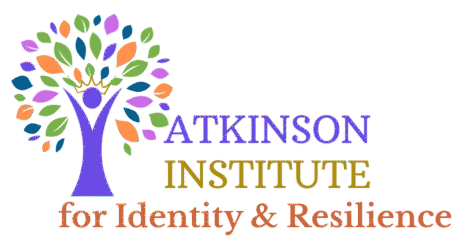Unmasking Imposter Syndrome: Personal Stories and the Science Behind the Struggles
You know the feeling—all eyes on you, convinced you don’t belong. You’re not alone. Countless individuals, from military spouses to young professionals, battle the hidden weight of imposter syndrome. This struggle isn’t just emotional; it’s a brain game, rooted in complex neurological processes. In this blog, we share personal stories and break down the science behind the struggle. Through understanding, we find strength. Discover how The Atkinson Institute’s workshops can turn self-doubt into confidence, guiding you toward empowerment and resilience.
Personal Stories of Struggle

Imposter syndrome manifests differently across diverse groups, each with unique struggles and triumphs. By exploring personal stories, we gain a multifaceted understanding of these experiences. This section highlights the voices of military spouses and the challenges faced by young professionals.
Voices of Military Spouses
Military spouses often face unique challenges that can exacerbate feelings of imposter syndrome. Constant relocations, career disruptions, and the pressures of supporting a service member can intensify self-doubt. Many spouses report feeling overshadowed by their partner’s achievements, leading to a sense of inadequacy.
-
Frequent relocations disrupt career progression, leading to gaps in employment and a loss of professional identity.
-
Supporting roles can overshadow personal accomplishments, as military life often demands prioritization of the service member’s career.
Real stories from military spouses reveal a common thread of resilience amid these challenges. By sharing their experiences, they illuminate the path toward building confidence and finding validation outside of traditional career achievements.
Challenges of Young Professionals
Young professionals entering the workforce frequently encounter imposter syndrome. The transition from academia to professional environments can be daunting, with self-doubt emerging as a common experience. Many fear being exposed as inexperienced or underqualified.
-
High expectations from employers and colleagues can intensify anxiety, as young professionals strive to prove their worth.
-
Comparisons with peers, especially in competitive industries, can fuel feelings of inadequacy.
These challenges are explored in-depth through personal stories that highlight the pressures young professionals face. By acknowledging these struggles, we can better support their journey toward confidence and success.
The Science Behind Imposter Syndrome

Imposter syndrome is not just an emotional experience—it’s rooted in complex neurological processes. This section delves into the brain’s involvement and the psychological patterns that contribute to self-doubt.
Unraveling the Brain’s Role
The brain plays a significant role in imposter syndrome. Neurological studies suggest that certain brain regions are involved in the feelings of self-doubt and inadequacy. Understanding these processes can provide insight into why imposter syndrome occurs and how to address it.
-
The prefrontal cortex is responsible for self-reflection and critical thinking, which can sometimes lead to excessive self-criticism.
-
Amygdala responses can trigger anxiety and fear of judgment, common in imposter syndrome experiences.
Research highlights the importance of recognizing these brain activities to develop effective coping strategies. By understanding the neurological basis, individuals can begin to separate irrational fears from reality.
Common Psychological Patterns
Several psychological patterns contribute to the development of imposter syndrome. These patterns often involve distorted thinking and negative self-perceptions. Recognizing and addressing these patterns can help individuals combat self-doubt.
-
Perfectionism: The belief that one must perform flawlessly to be valued.
-
Discounting success: Attributing achievements to luck or external factors rather than personal effort.
These psychological patterns are discussed in depth to provide a framework for understanding imposter syndrome. By identifying these patterns, individuals can take proactive steps toward building self-awareness and confidence.
Building Confidence and Resilience
Overcoming imposter syndrome requires intentional efforts to build confidence and resilience. This section explores how empowerment workshops and strategies can transform self-doubt into self-assurance.
Empowerment Workshops at The Atkinson Institute
The Atkinson Institute offers workshops designed to empower individuals struggling with imposter syndrome. These sessions focus on cultivating confidence, resilience, and self-awareness. Participants are equipped with tools to manage self-doubt effectively.
-
Interactive activities that promote self-reflection and personal growth.
-
Group discussions to share experiences and build a supportive community.
Through these workshops, participants learn to recognize their strengths and develop a positive self-image. By fostering a sense of community, the workshops create an environment where individuals feel supported and encouraged to overcome their challenges.
Strategies for Overcoming Self-Doubt
Building resilience involves adopting practical strategies to combat self-doubt. By implementing these techniques, individuals can gradually shift their mindset and embrace confidence.
-
Challenge negative thoughts: Reframe self-critical thoughts with positive affirmations.
-
Set realistic goals: Break objectives into manageable steps to avoid overwhelming feelings.
-
Celebrate achievements: Acknowledge and reward personal successes, no matter how small.
These strategies offer a roadmap to overcoming imposter syndrome. By taking actionable steps, individuals can cultivate a mindset that embraces resilience and self-assurance, ultimately leading to personal and professional growth. 🌟💪📚


